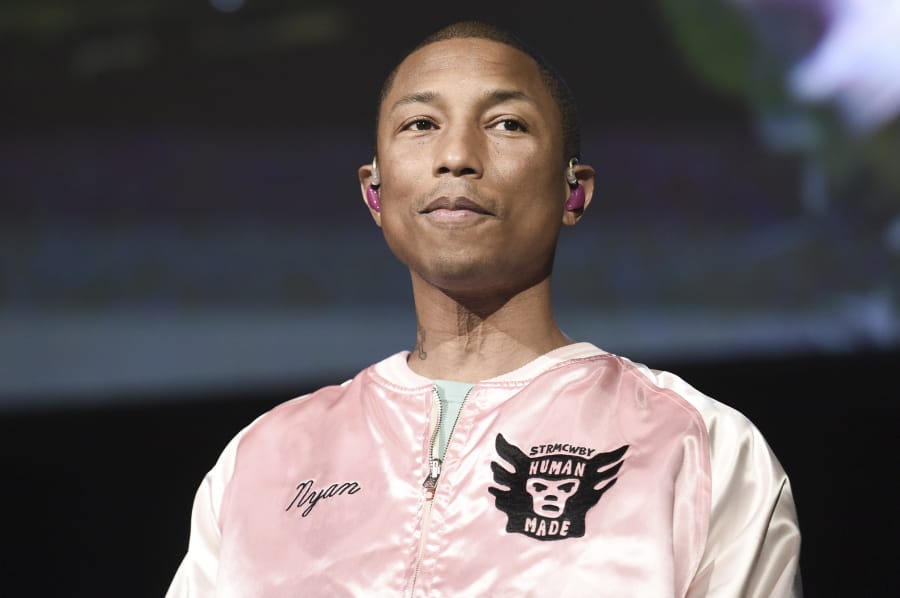Pharrell Williams is confronting the complicated legacy of one of his biggest hits.
In a recent interview with GQ, the musician and producer said he gets “embarrassed” by some of the songs in his massive catalogue. One particularly shame-inducing record is “Blurred Lines,” the Robin Thicke-fronted track that topped the Billboard Hot 100 chart for 12 weeks in 2013 – and touched off a debate about toxic masculinity and rape culture.
The Daily Beast declared the song — anchored by Thicke’s baritone-inflected refrain: “I know you want it” — “kind of rapey.” But Williams confessed he initially “didn’t get” the backlash against the track or its music video, which featured scantily clad women flanking him, Thicke and rapper T.I., and, as the song’s defenders pointed out, was directed by a woman.
“There are women who really like the song and connect to the energy that just gets you up,” Williams told GQ. “And ‘I know you want it’– women sing those kinds of lyrics all the time. So it’s like, ‘What’s rapey about that?'”
“And then I realized that there are men who use that same language when taking advantage of a woman, and it doesn’t matter that that’s not my behavior,” Williams continued. “Or the way I think about things. It just matters how it affects women.”
The profile’s author, GQ Editor in Chief Will Welch, pointed out that Williams chose to raise the subject of “Blurred Lines” himself in an interview that explored the evolving perceptions of masculinity and the musician’s thoughts on the future. Ultimately, Williams concludes that “Blurred Lines” opened him up to the realization “that we live in a chauvinist culture in our country.”
“Hadn’t realized that. Didn’t realize that some of my songs catered to that,” Williams added. “So that blew my mind.”
“Blurred Lines” will go down as one of the biggest hits of the decade both despite and because of the drama surrounding the song. The record found additional controversy after Thicke performed it at the 2013 VMAs, where “Blurred Lines” lost the Video of the Year award to Justin Timberlake’s “Mirrors.” The music video, helmed by veteran director Diane Martel, helped launch the career of model Emily Ratajkowski, who appeared in “Gone Girl” the following year. Reflecting on the music video in 2015, Ratajkowski told InStyle UK: “I think I came off as a bit annoyed in the video. Now, it’s the bane of my existence.”
For her part, Martel told Grantland in 2013 that she didn’t think the video was sexist: “I directed the girls to look into the camera, this is very intentional and they do it most of the time; they are in the power position.”
The Grammy-nominated track was also at the center of a copyright infringement lawsuit filed by Marvin Gaye’s family, who argued that the song borrowed from the late singer’s 1977 hit “Got to Give It Up.” The years-long legal battle revealed that “Blurred Lines” had made more than $16 million; Williams and Thicke, who co-wrote the track, were ordered to pay the Gaye family over $5 million.



